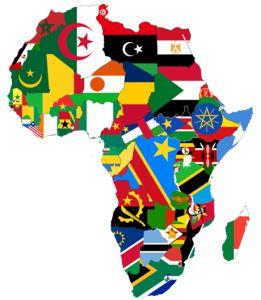
Africa Day
25 May

The history of Africa Day stretches back over half a century and is intertwined in the collective history of the continent’s countries. The date of 25 May commemorates the day that the Organisation of African Unity (OAU), the precursor to the African Union (AU), but its roots go back even further.
A year after its independence, Ghana under the leadership of President Kwame Nkrumah convened the first Conference of Independent African States on 15 April 1958. The conference called for the observance of African Freedom Day (or Africa Liberation Day), once a year in April and this marked the beginning of what would later be known as Africa Day. The conference called for this Day to encourage and forge a common goal of fighting against colonial rule and to mark the onward progress of the liberation movement, and to symbolise the determination of the People of Africa to free themselves from foreign domination and exploitation.
As more African countries achieved independence, the need arose for an organisation that would articulate the aspirations of African people and their struggle. Consequently, on 25 May 1963, leaders of 32 African nations converged in Ethiopia’s capital Addis Ababa and formed the OAU. The OAU thereafter changed the date of Africa Freedom Day from 15 April to 25 May to mark the founding of the organisation. In the same spirit, the AU was established on 25 May 2001 in Durban South Africa. South Africa itself had joined the OAU on 23 May 1994 as its 53rd member.
On this Africa Day, and 57 years later, President Nkrumah’s visionary remarks that explain “the forces that unite us are intrinsic and greater than the superimposed influences that keep us apart” remains unerring and foretold of the strength of Pan-Africanism today. Similarly, this Africa Day, shared experiences and unity must be celebrated as the most meaningful resource to wield against the COVID-19 outbreak and its associated effects.
The sobering reality that the continent is confronting cannot be ignored and it will compound several challenges Africa is already facing such as poverty, inequality, and conflict. The urgency of these issues is well understood and reflected in the AU’s long-term vision in Agenda 2063 and in its theme for 2020 – “Silencing the Guns: Creating Conducive Conditions for Development in Africa” that reinforce the AU’s efforts to address underlying root causes of conflict and facilitating socio-economic development.
The COVID-19 outbreak and its threats are the latest manifestations of why we need to silence our guns and it has never been as urgent for African leaders to develop and effectively implement policies that foster sustainable inclusive economic growth and better align the supply and demand for skilled labour, especially for the youth of the Continent. Nevertheless, the pandemic has also created an opportunity for these policies and actions; which H.E. Moussa Faki Mahamat, Chairperson of the African Union Commission highlighted in his Africa Day address:
“As we embark on this path, our leaders will be closer to our citizens, and our Nations will become stronger. In my opinion, this inward-looking and self-reliance approach, will be a catalyst for the renaissance of our Nations. It is only when they are tested, that nations and states truly emerge. We are now at that point in history”.
COVID-19 has brought unprecedented changes and is a stark reminder of the vulnerabilities in Africa’s infrastructure and healthcare, social protection, and economic systems. Despite these challenges, Africa has reflected a deep sense of resilience and has made significant strides to chart its course. On this Africa Day, we all must continue to generate innovative ideas on how Silencing the Guns can be used to move the continent forward, towards a more integrated, prosperous and peaceful Africa.